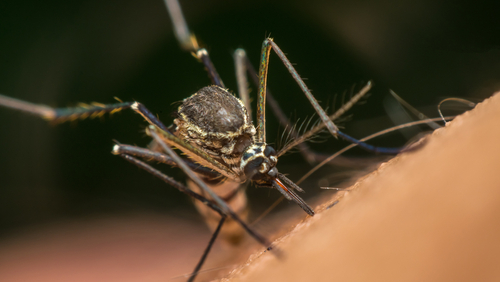India aims to eliminate malaria by 2030 but drug resistant strains pose a challenge
Partner Content Jan 11, 2019
A recent report shows that 362 cases of malaria were not responsive to treatment with the drugs artesunate, sulfadoxine, pyrimethamine.

In 2017, the Ministry of Family Welfare and Health came up with a plan to eliminate the presence of malaria in India by the year 2022 and aimed to completely eradicate the disease by 2030. A task force was set up to execute the task which was planned to be divided into phases. The plan falls under the National Rural Health Mission’s National Vector Borne Disease Control Programme.
However, what was not taken into account at the time was the possibility of the emergence of drug-resistant malaria. A recent report shows that 362 cases of malaria were not responsive to treatment with the drugs artesunate, sulfadoxine, pyrimethamine. Of these, 20 people did not respond to treatment with a combination of drugs, including a “last line” drug called artemisinin. Should this trend worsen, this will prove to be a significant obstacle in the government’s efforts to combat and eradicate malaria. The study was conducted by a group of researchers - Somenath Roy from Vidyasagar University in Midnapore, Sabyasachi Das from Lincoln University College in Malaysia, Amiya K Hati from Calcutta School of Tropical Medicine in Kolkata, and Bhaskar Saha from the National Centre for Cell Science in Pune.
Malaria is not new to the Indian subcontinent. Anopheles mosquitoes act as the vectors which transmit the malarial parasite to humans via blood. When a mosquito carrying the malarial parasite bites an individual, there is a chance of the parasite being transmitted to the individual. The transmitted parasite then undergoes further growth phases in the human body. People present with high grade fever, with a possible rise in temperature seen at night, along with chills and rigors. A blood test will reveal the presence of any parasites. Once a person has been diagnosed to have malaria, they will be started on a treatment regime with the first line of drugs.
What is artemisinin resistance?
Artemisinin is a drug derived from the sweet wormwood plant. Used in combination therapy as recommended by the World Health Organisation (WHO), it helps to reduce the number of infectious Plasmodium parasites in the blood of those who are infected. Artemisinin based combination therapy (ACT) is currently recommended by the WHO for a form of malaria caused by the parasite Plasmodium vivax and which is resistant to treatment with chloroquine.
“Artemisinin works by reducing the number of parasites present in an individual’s blood. This usually occurs within 3 days of starting the treatment. The other drug given in combination works by further eliminating any other parasites,” explains Dr Keerthi M, a general physician. “There are currently 5 types of ACTs which are recommended by the WHO, but in practice we may use around 2 or 3 of those.”
In a case of resistance, even after 3 days, the individual presents with fever and the presence of malarial parasites in the blood. This may prove to be a hindrance to the government’s plans to tackle and eliminate malaria. As stated by the researchers of the study, in order to manage and control malaria on the way to eliminating it, surveillance needs to be increased to detect resistant cases.
“Our findings with regard to early treatment failure related to artemisinin resistance and late treatment failure due to partner-drug resistance emphasize the need for increased surveillance of drug resistance in order to manage the spread of resistant parasites,” ends the study.
This story was originally published on The News Minute and is reprinted here with permission. It can be viewed on https://www.thenewsminute.com/article/india-aims-eliminate-malaria-2030-drug-resistant-strains-pose-challenge-94703
-
Exclusive Write-ups & Webinars by KOLs
-
Daily Quiz by specialty
-
Paid Market Research Surveys
-
Case discussions, News & Journals' summaries